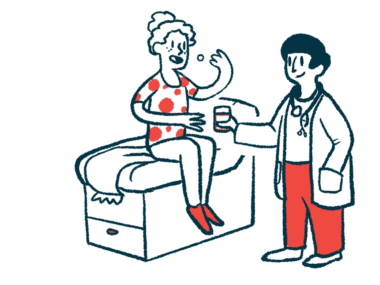FDA Grants Orphan Drug Status to Argenx’s ARGX-113 for Treating Myasthenia Gravis
Written by |

The U.S. Food and Drug Administration has granted orphan drug status to ARGX-113, a potential treatment for myasthenia gravis, its developer argenx said in a press release.
MG is an autoimmune disease triggered by immunoglobulin G auto-antibodies, or IgGs. They attack critical signaling proteins at the junction between nerve and muscle cells. The attacks impair the signals, leading to muscle weakness.
The FDA grants orphan drug status to drugs or biological products that may be able to treat a rare disease. The designation offers incentives to companies developing therapies, including tax credits and a seven-year period of market exclusivity in the United States.
At the moment there are limited therapeutic options for MG.
Argenx developed ARGX-113 to treat IgG-regulated autoimmune disorders, diseases that occur when the immune system mistakenly attacks the body’s own tissues. The company created the therapy by modifying what is known as the Fc portion of an antibody. Antibodies, also known as immunoglobulins, are specialized immune proteins that attack invaders.
The Fc modification that argenx made increases the antibody’s affinity for the protein FcRn over that of other antibodies. Scientists believe the interaction between IgGs and FcRn plays a role in the development of MG. ARGX-113 works by depleting the autoimmune disease-causing IgG auto-antibodies.
Argenx believes the therapy can reduce myasthenia gravis symptoms while minimizing side effects associated with standard treatments.
On Aug. 31, Myasthenia Gravis News reported that argenx had published a quarterly update of the results of a Phase 2 clinical trial (NCT02965573) evaluating ARGX-113 as a treatment for MG.
The main objectives of the trial are to determine the safety, effectiveness and pharmacological profile of ARGX-113 in patients with generalized muscle weakness. A pharmacological profile refers to how the body processes a drug.
At the time of the quarterly announcement, argenx had reached half of its trial enrollment goal of 24 patients. It continues to recruit patients.
Researchers are looking at whether ARGX-113 can reduce myasthenia gravis activity and improve patients’ quality of life, and at any adverse effects the therapy causes.
Before the Phase 2 trial started, ARGX-113 had demonstrated an ability to reduce IgG levels by up to 85 percent. It had also shown a favorable safety profile.
Full results of the trial are expected in 2018.
The company will test the use of injections to administer ARGX-113 in a Phase 1 trial with healthy volunteers. It is expected to start in the next few months.



Leave a comment
Fill in the required fields to post. Your email address will not be published.